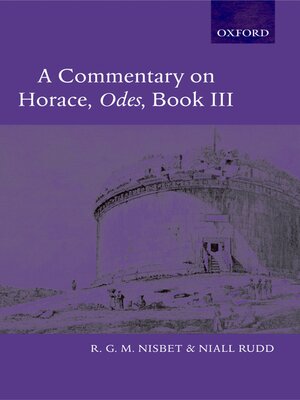
Sign up to save your library
With an OverDrive account, you can save your favorite libraries for at-a-glance information about availability. Find out more about OverDrive accounts.
Find this title in Libby, the library reading app by OverDrive.



Search for a digital library with this title
Title found at these libraries:
| Library Name | Distance |
|---|---|
| Loading... |
This book is a successor to the commentaries by Nisbet and Hubbard on Odes I and II, but it takes critical note of the abundant recent writing on Horace. It starts from the precise interpretation of the Latin; attention is paid to the nuances implied by the word-order; parallel passages are quoted, not to depreciate the poet's originality but to elucidate his meaning and to show how he adapted his predecessors; sometimes major English poets are cited to exemplify his influence on the tradition. In expounding the so-called Roman Odes the editors reject not only uncritical acceptance of Augustan ideology but also more recent attempts to find subversion in a court-poet. They show how Greek moralizing, particularly by the Epicureans, is applied to contemporary social situations. Poems on country festivals are treated sympathetically in the belief that the tolerant and inclusive religion of the Romans can easily be misunderstood. The poet's wit is emphasized in his addresses both to eminent Romans and to women with Greek names; the latter poems are taken as reflecting his general experience rather than particular occasions. Though Horace's ironic self-presentation must not be understood too literally, the editors reject the modern tendency to treat the author as unknowable. Although the text of the Odes is not printed separately, the headings to the notes provide a continuous text. The editors put forward a number of conjectures, most of them necessarily tentative, and in the few cases where they disagree, both opinions are summarized.







